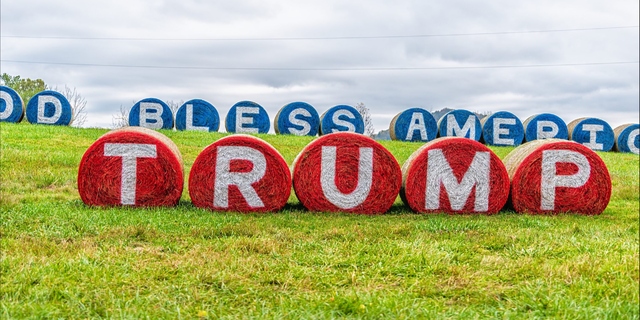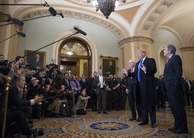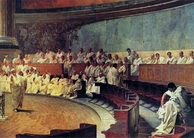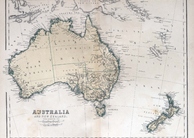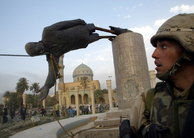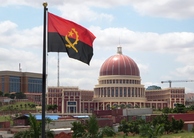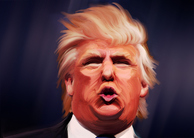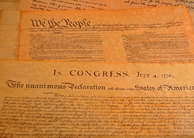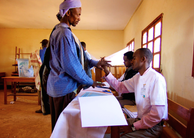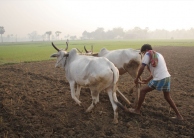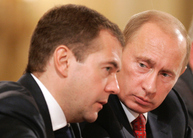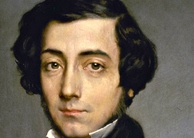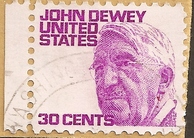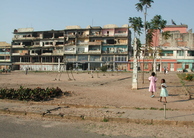|
Democracy (tagged articles)
The keyword Democracy is tagged in the following 52 articles.
2022, Vol. 14 No. 03
This paper explores the complexity of Whitman’s nationalism and, with reference to Leaves of Grass (1856), examines the apparent paradox between Whitman’s poetry of love and recognition and his imperialistic impulses. This paper draws... Read Article »
2022, Vol. 14 No. 01
This article explores the political relationship between nation-building, ethnicity, and Democracy in the context of Ethiopia. It traces Ethiopia's poltical history, explores the consequential role ethnicity has played in the formation of the modern... Read Article »
2022, Vol. 14 No. 01
Was the selection of Donald Trump in the 2016 Republican Primary a strategic or a substantive choice? Donald Trump defied many predictions when he won the GOP’s presidential nomination despite his initial ‘underdog’ standing and... Read Article »
2021, Vol. 13 No. 12
This thesis explores the inherent conflict between liberty and equality—the twin pillars on which the United States and its Constitution are predicated—and the materialization of this conflict in storm center texts, whose subjects cover... Read Article »
2021, Vol. 13 No. 10
More and more countries are democratic, but at the same time, the number of people dissatisfied with it has constantly been increasing during the last two decades. Nevertheless, studying people’s “satisfaction with Democracy” has... Read Article »
2021, Vol. 13 No. 09
One of the key ways to measure and analyze the performance of such expansive countries such as the United States is to look at their institutions and corresponding values. This paper offers a framework of thin Democracy, the institutions, norms,... Read Article »
2021, Vol. 13 No. 04
Following the enlightenment era, a new incarnation of politics created a uniquely democratic, liberal, egalitarian structure of government in Western democracies. In recent years, there has been an erosion of these qualities in favor of alternate... Read Article »
2020, Vol. 12 No. 11
The United States Constitution is the longest lasting written constitution in the world, despite the fact that one of the key framers, Thomas Jefferson, believed that written constitutions ought to have a nineteen year expiration date before they... Read Article »
2020, Vol. 12 No. 02
‘State fragility’ comes in many manifestations, ranging from violent civil conflict to state-sanctioned corruption. Often the term is paired exclusively with the developing world. This is a misnomer. Those within the liberal world order... Read Article »
2017, Vol. 9 No. 10
Political philosophers and theorists alike continue to debate if more enlightened populations would be of value or not. This piece will contribute to that dispute by claiming that an enlightened populace is integral to the progress of free-societies... Read Article »
2016, Vol. 7 No. 1
The consensus in scholarly circles regarding democratic consolidation stipulates the importance of a cohesive demos, or population, that is also congruent with a representative polity, or political class. One of the main inhibitors of this goal... Read Article »
2016, Vol. 8 No. 11
In Federalist No. 34 Alexander Hamilton, arguing for the ratification of the United States Constitution, claimed that the Roman Republic had “attained to the utmost height of human greatness.”[1] The Roman Republic, at least an idealized... Read Article »
2016, Vol. 8 No. 10
This article explores the nature of Canada’s political system as an evolving consequence of its roots in classical liberal thinking coupled with the self-protecting instincts of a variety of elite interest groups. In performing this exploration... Read Article »
2016, Vol. 8 No. 10
This quote by the early 20th century Lebanese poet Kahlil Gibran captures both the core idea and some of the implicit issues posed by what was later to be called the “risk society thesis” and was to have a massive impact on contemporary... Read Article »
2016, Vol. 8 No. 10
Hong Kong is standing at a crucial social and political juncture in its history. A former British colony, it has retained its unique legal system, electoral system, and political Democracy. These systems have worked together to create a society... Read Article »
2016, Vol. 8 No. 09
This paper is an attempt to navigate through existing theories of universalisation of human rights and existing justifications thereof. It is premised on several cultural and political notions that it takes as starting points, not as truisms, but... Read Article »
2016, Vol. 8 No. 06
The occurrence of state failure is an important concern for Australia as it pertains to the security and stability of the broader region (Ezrow & Frantz 2013, pp. 16-17). Rotberg (2003, p. 1) defines state failure as the result of internal violence... Read Article »
2016, Vol. 6 No. 2
The efficacy of efforts by the United States government to influence regime change in foreign nations has been increasingly called into question. Motivated by these statements of skepticism, the study herein provides a statistical analysis of the... Read Article »
2016, Vol. 9 No. 2
Four decades after independence from Portugal, Angola remains a country with significant barriers to good governance and social development. Although the state's constitution established a multiparty Democracy in the early 1990s, measures of high... Read Article »
2016, Vol. 8 No. 03
The ideas of Adam Smith have remained relevant well beyond his lifetime. He is remembered as the father of modern-day economics and the author of the still widely read Wealth of Nations, known for his formulation of the invisible hand and consequent... Read Article »
2015, Vol. 7 No. 11
In the United States, Americans elect 50 governors, roughly a third of the U.S. Senate’s 100 members, all 435 members of the U.S. House of Representatives, and, every four years, a president. Together, these are the most high profile elections... Read Article »
2015, Vol. 7 No. 08
Since Independence, the Indian government has struggled to achieve political modernity within acceptable religious boundaries. Religious diversity in India necessitates governmental sensitivity toward sometimes opposing principles, and yet, when... Read Article »
2015, Vol. 7 No. 07
This study looks at populist movements in Greece that formed in reaction to the failures of elite statist politicians. Beginning with the 2008 student uprisings in Athens, this narrative follows the escalation of social and political activism as... Read Article »
2015, Vol. 7 No. 06
The concept of a “fourth estate” was first articulated by John Declare, editor of The Times in an article published in 1853. He believed the press had a crucial role to play in British society’s transformation into a representative... Read Article »
2015, Vol. 5 No. 1
This research examines the assumed relationship between Western education and Democracy as it relates to Middle East leadership. While previous literature on this topic has argued that a non-Western leader's Western education is a positive contributor... Read Article »
2015, Vol. 7 No. 04
The assertion that unconstrained power brings with it inevitable corruption has occupied theorists since the first considerations of authority. That the nature of man in unconstrained assemblage will lead to a “tyrannical abuse of power&rdquo... Read Article »
2014, Vol. 6 No. 08
To assert that Kashmir has been at a perennial crossroads is a gross understatement. For the good part of sixty years, Indian, Pakistani, and Kashmiri interests have been tussling over the disputed region. For the most part, though, the South Asian... Read Article »
2013, Vol. 3 No. 1
The continued application of the death penalty in the United States marks the country as an extreme outlier among its allies and like-minded nations in the 21st century. In order to explain America's retention of this criminal punishment, scholars... Read Article »
2013, Vol. 5 No. 02
Although the ‘Perónist Years’ amounted to a little less than a decade, Juan Perón’s presidency had long-lasting effects. As historians Matthew B. Karush and Oscar Carosa write, “Perón transformed Argentina... Read Article »
2012, Vol. 4 No. 12
In May 1991, Somaliland emerged as a self-declared independent state in the aftermath of the failure and subsequent collapse of Siyad Barre’s Somalia. Although ethnically and linguistically Somalilanders are undifferentiated from their counterparts... Read Article »
2012, Vol. 6 No. 1
Seymour M. Lipset dubbed economic development a “social requisite to Democracy,” considering factors such as national wealth, a large degree of industrialization, and high levels of education to be necessary fertilizers to prepare a... Read Article »
2012, Vol. 4 No. 09
When on September 24th, 2011 Russian prime minister Vladimir Putin announced his bid to run for president in the presidential elections in March 2012, a supposition in Russia's political regime was confirmed that many observers suspected would... Read Article »
2012, Vol. 4 No. 09
Limits lie at the heart of the American political system. No governmental body or figure has unlimited authority—all are checked by the others. However, beyond this, political thinkers are divided over how best to mitigate majoritarian influence... Read Article »
2012, Vol. 4 No. 08
Utilizing 2009 data from the Latinobarómetro public opinion survey and bivariate statistical methods, this study assesses the degree to which respondents’ evaluations of both national economic conditions and their personal economic... Read Article »
2011, Vol. 5 No. 1
Elyès Jouini is the vice-president for research of Université Paris-Dauphine and former Minister for the Economic and Social Reforms of the Tunisian transition government. He currently serves as the President of the Fondation Paris... Read Article »
2011, Vol. 3 No. 09
Within the milieu of American television, the vigilante serial killer, Dexter, stands alone with one of the largest audiences. Why should a violent antihero, who stalks and kills other serial killers, be so appealing to Americans with a democratic... Read Article »
2011, Vol. 2011/2012 No. 1
It was commonplace among academics of the 1970s to share an understanding of the frozen nature of international relations during the Cold War period, and to hold similar assumptions about the fixed character of the nation-state and the importance... Read Article »
2011, Vol. 2011/2012 No. 1
The Treaty of Lisbon1 has had effects on the workings of the European Union, and has significant implications both for how it functions through its provisions on governance and decision-making and on how the union develops. Lisbon has political... Read Article »
2011, Vol. 3 No. 04
The problems associated with democratic reform in the Democratic Republic of the Congo (DRC) are manifold. While the name of the country surely lends itself to an assumption of regime type, in actuality, this area has experienced great civil unrest... Read Article »
2011, Vol. 3 No. 04
Following a successful war of liberation in 1962, Algeria successfully gained independence from France and an authoritarian social regime took power. The success of this government lasted into the 1980s, when Algeria's oil reserves began to decline... Read Article »
2011, Vol. 3 No. 04
The most obvious and immediate difference between Alexis de Tocqueville’s Democracy in America and Astolphe de Custine’s Letters from Russia is one of style.[1] Put simply, Tocqueville’s text is an impersonal social-scientific... Read Article »
2011, Vol. 4 No. 2
Seymour Martin Lipset's, "the more well-to-do a nation, the greater chances that it will sustain Democracy,"1 has set off over five decades of intense debate over the conditions most conducive to democratic transition and establishment. Variations... Read Article »
2011, Vol. 3 No. 03
John Dewey was an ingenious and significant figure whose criticisms spanned a wide range of disciplines, including philosophy, education, politics, aesthetics, and ethics. The late American philosopher Richard Rorty, in Philosophy and the Mirror... Read Article »
2010, Vol. 2 No. 10
Many scholars believe that the mass public is ignorant regarding political matters (Somin 1998; Converse 1964; Campbell, Converse, Miller, Stokes 1980; Caplan 2007). Somin (1998) divides this ignorance into three types. One is a lack of information... Read Article »
2010, Vol. 2 No. 04
Angola today is framed by a history of violent conflict that has left the population far behind on all major indicators. Lacking a democratic culture, the country faces two significant challenges: first, the challenge of completing a long-stalled... Read Article »
2010, Vol. 2 No. 03
Democracy is based on the core principle that the power to govern should be in the hands of the people. In the United States, the people exercise that power by casting their vote for the candidate they see as most fit to lead. This right is... Read Article »
2010, Vol. 2 No. 01
From 1954 to 1989, Paraguay was subject to the authoritarian regime of Alfredo Stroessner and the Colorado Party. While Stroessner came to power at a time of great economic strife, it was the most prosperous time of his regime that led to his downfall... Read Article »
2010, Vol. 2009/2010 No. 1
“But you can’t grow,” answered the Fairy. “Why not?” “Because Marionettes never grow. They are born Marionettes, they live Marionettes, and they die Marionettes.” “Oh, I’m tired of always being... Read Article »
2009, Vol. 1 No. 10
In 1688, King James II was overthrown by a group of Parliamentarians. This was the result of what is now known as the Glorious Revolution, or the Revolution of 1688. Naturalist and political philosopher John Locke was present to witness these events... Read Article »
2008, Vol. 1 No. 2
U.S. foreign policy exemplifies a broad Wilsonian consensus about the value of Democracy promotion. The “forward strategy of freedom,” for example, has been the cornerstone of the Bush administration’s geopolitics, but it was not... Read Article »
2000, Vol. 1999/2000 No. 1
At the time of the 1979 Devolution Referendum, when all the votes were counted and the results were announced, the then Secretary of State for Wales John Morris famously said: “When you see an elephant on your doorstep, you know that it... Read Article »
1999, Vol. 1998/1999 No. 2
In Issue 53 of Interstate, Peter Hand argued that the ‘Third Way’ was nothing but a well packaged combination of rhetoric and soundbites on the part of a government wholly obsessed by presentation.[1] Given the constraints of space... Read Article »
Expedited Article Review
Submit an article and get a decision fast.
If you need a fast decision, INQUIRIES Journal offers expedited processing of your submission for a small fee. Depending on the expedited review option you choose, you can receive a decision in as few as 5-days.
In addition to a shorter review period, the fee supports the journal's continued operation and open-access publishing model. Standard submissions are always free. Submit Now » - Submit an Article to Inquiries Journal -
|



